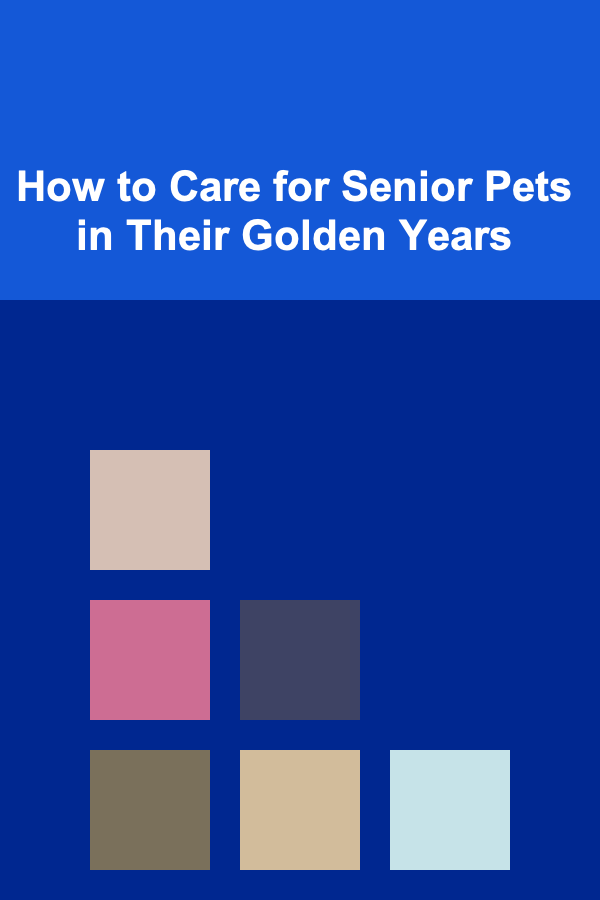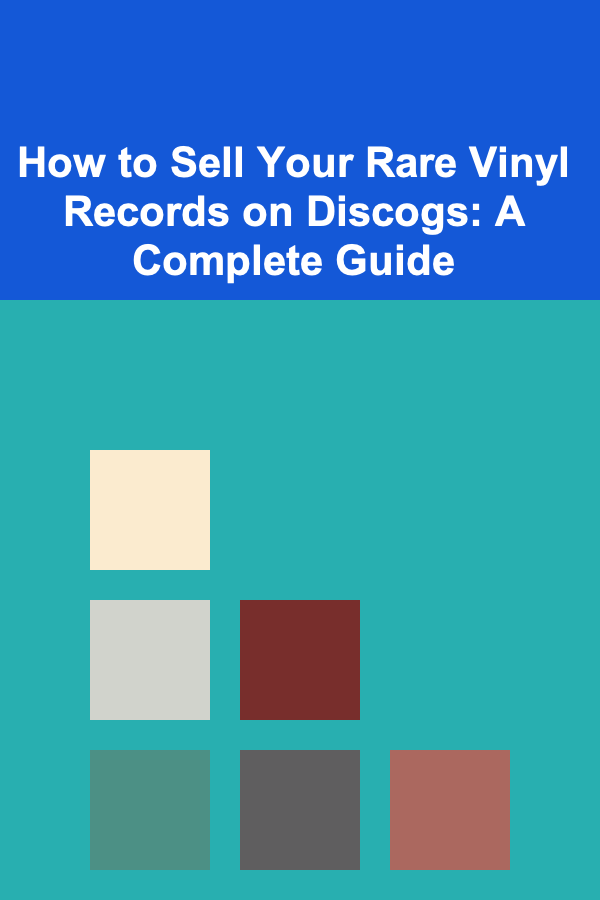
How to Understand DAOs (Decentralized Autonomous Organizations) on Blockchain
ebook include PDF & Audio bundle (Micro Guide)
$12.99$9.99
Limited Time Offer! Order within the next:

In the world of blockchain technology, one of the most revolutionary concepts to emerge is that of the Decentralized Autonomous Organization (DAO). DAOs are changing the way we think about governance, organizational structures, and decision-making. They promise to eliminate intermediaries, increase transparency, and ensure fairness through decentralized control. However, understanding how DAOs function, their underlying principles, and their potential applications requires a deep dive into blockchain technology, economics, and governance models.
In this article, we will explore what DAOs are, how they operate, the key technologies behind them, and their potential impact on various industries. Whether you are a blockchain enthusiast, developer, or business leader, understanding DAOs is crucial for grasping the future of decentralized systems.
What is a DAO?
A Decentralized Autonomous Organization (DAO) is a new form of organizational structure where decision-making processes, management, and rules are encoded into smart contracts on a blockchain. In a traditional organization, a central authority---such as a CEO, board of directors, or government---makes decisions and enforces rules. In contrast, DAOs operate without a centralized authority and rely on blockchain technology to facilitate decentralized governance and decision-making.
The key features of DAOs are:
- Decentralization: There is no central authority or single point of control. All decisions are made by the collective group of participants.
- Autonomy: DAOs operate autonomously based on the rules encoded in smart contracts, which are self-executing and can enforce predetermined rules without the need for human intervention.
- Transparency: The entire process of decision-making, including voting and fund distribution, is transparent and recorded on the blockchain for public scrutiny.
The concept of DAOs was popularized by projects such as Ethereum, where smart contracts allow users to participate in governance without the need for intermediaries. A DAO's operations are completely governed by its community, often via voting mechanisms.
The Underlying Technology: Blockchain and Smart Contracts
The foundation of DAOs lies in blockchain technology, which provides the necessary infrastructure for decentralization, security, and transparency. In particular, Ethereum, the most popular blockchain for building DAOs, enables the use of smart contracts, which are essential for their functionality.
Blockchain Technology
A blockchain is a distributed ledger or database that records transactions across multiple computers in a secure, transparent, and immutable way. In the context of DAOs, the blockchain serves as the platform for hosting and executing the smart contracts that govern the organization's rules, transactions, and decision-making.
Because the blockchain is decentralized, it eliminates the need for intermediaries like banks, government institutions, or corporate managers. Instead, transactions and operations are validated by a network of participants, ensuring that no single entity has full control over the system.
Smart Contracts
Smart contracts are self-executing contracts with the terms of the agreement directly written into code. They run on blockchain platforms like Ethereum and automatically enforce the terms and conditions once certain criteria are met. For example, in the case of a DAO, smart contracts can be used to manage voting, allocate resources, or distribute funds according to the rules established by the organization's members.
Smart contracts provide several advantages to DAOs, including:
- Automation: Processes like voting and fund distribution can be automated, reducing the need for manual intervention.
- Trustlessness: Participants do not need to trust a central authority or intermediaries; they can trust the code that enforces the rules.
- Transparency: All actions and transactions are visible on the blockchain, providing full transparency and accountability.
How Do DAOs Work?
DAOs function through a series of steps, each of which is governed by rules encoded in smart contracts. Let's break down the basic process of how a DAO works:
1. Creation of the DAO
The first step in the creation of a DAO is the drafting of a smart contract. This contract outlines the organization's objectives, governance model, rules, and processes. The smart contract is deployed on the blockchain and becomes the foundation of the DAO.
For example, the DAO might specify how voting works, how proposals can be submitted, and how funds are managed. Once the smart contract is created, the DAO can begin attracting members who want to participate in its operations.
2. Membership and Tokenization
Most DAOs rely on tokens as a means of governance. These tokens often represent ownership, voting power, or a share in the DAO's assets. New members of the DAO can acquire tokens either by purchasing them or by earning them through participation in the organization's activities.
Tokens play a critical role in DAOs because they are typically used to vote on proposals, such as changes to the rules of the organization, allocation of funds, or the hiring of new members. The number of tokens a member holds often determines their voting power, although some DAOs implement alternative models where each member gets one vote regardless of token holdings.
3. Proposal and Voting
Once the DAO is operational, members can submit proposals that suggest changes or actions the organization should take. These proposals might include changes to the DAO's bylaws, new initiatives, or funding requests. Proposals are usually put to a vote, where members cast their votes using the DAO's tokens.
Voting in a DAO is generally transparent, meaning that the votes are recorded on the blockchain and can be audited by anyone. The voting process ensures that decisions are made collectively by the members, rather than by a centralized authority.
4. Execution of Decisions
Once a proposal passes, the DAO's smart contract executes the decision automatically. This can involve the distribution of funds, the creation of new rules, or other actions defined by the proposal. The beauty of DAOs lies in their automation---the need for human intermediaries is greatly reduced.
5. Continuous Evolution
DAOs are designed to evolve over time. Because all decisions are made collectively and recorded on the blockchain, a DAO can adapt to changing conditions, needs, and objectives. Additionally, DAOs can be restructured or reorganized based on community feedback and the results of previous decisions.
Governance Models in DAOs
Governance in DAOs is a key area of focus, as it defines how decisions are made and who has the power to influence the direction of the organization. Different DAOs use various governance models, depending on their objectives, the number of participants, and the nature of their operations.
1. Token-Based Governance
In many DAOs, governance is tied to token ownership. Members who hold tokens have voting power, and the more tokens they hold, the more influence they have over decisions. This is similar to shareholder voting in a corporation.
However, this model can lead to centralization if a small group of individuals holds a disproportionate number of tokens. To address this, some DAOs implement measures to limit the concentration of voting power, such as capping the maximum number of tokens a single participant can hold or using quadratic voting, where the cost of additional votes increases exponentially.
2. One-Token-One-Vote
Some DAOs use a one-token-one-vote governance model, where each participant has an equal say in decision-making, regardless of the number of tokens they hold. This model is more egalitarian and ensures that no single participant can dominate the voting process. However, it may be less practical in large DAOs with many participants, as it can lead to slower decision-making and increased costs for participation.
3. Reputation-Based Governance
In reputation-based governance models, voting power is not determined by the number of tokens held but by the reputation or contribution of a participant. Participants who contribute more to the DAO's activities or provide value to the community are granted higher reputation scores, which in turn give them greater influence in the decision-making process.
This model incentivizes active participation and rewards long-term contributions. However, it can also be prone to bias or manipulation, as determining reputation can be subjective and difficult to measure fairly.
Benefits of DAOs
DAOs offer several significant benefits over traditional organizational models. These advantages stem from their decentralized, autonomous nature and the transparency of the underlying blockchain technology.
1. Decentralized Control
One of the most important benefits of DAOs is the elimination of central authority. In a traditional organization, power is concentrated in the hands of a few individuals or entities. DAOs, however, distribute decision-making power across the entire community, ensuring that no single entity can control the organization.
This decentralization reduces the risk of corruption, abuse of power, and bias, as all decisions are made collectively and transparently.
2. Increased Transparency
Since all transactions, votes, and proposals in a DAO are recorded on the blockchain, they are publicly visible and can be audited by anyone. This level of transparency ensures that all actions taken by the DAO are accountable to its members and the public.
In contrast, traditional organizations often operate with a lack of transparency, especially in matters like financial transactions and governance decisions. DAOs provide a more open and democratic alternative.
3. Reduced Costs and Intermediaries
By eliminating intermediaries, DAOs reduce the administrative costs associated with traditional organizations. For example, smart contracts can automatically execute transactions and enforce rules, reducing the need for human intervention. This makes DAOs more efficient and cost-effective, particularly for organizations that require frequent and complex decision-making processes.
4. Global Reach
DAOs are not limited by geographic borders. Since they operate on blockchain platforms, they are accessible to anyone with an internet connection. This global accessibility allows DAOs to attract a diverse group of participants and engage in cross-border collaborations without the need for traditional legal or financial intermediaries.
Challenges and Limitations of DAOs
Despite their promise, DAOs also face several challenges and limitations that must be addressed before they can become widely adopted.
1. Legal and Regulatory Issues
The legal status of DAOs is still unclear in many jurisdictions. Because DAOs operate outside of traditional legal systems, they face challenges related to liability, taxation, and regulatory compliance. For example, who is responsible if a DAO's smart contract fails or is hacked? Who has legal authority over a DAO's actions?
Until clear regulations are established, DAOs will likely face legal uncertainties that could hinder their growth and adoption.
2. Security Risks
Although blockchain technology is secure, DAOs are not immune to security risks. Smart contracts can contain bugs or vulnerabilities that hackers can exploit. For example, the infamous DAO hack in 2016 exploited a vulnerability in the DAO's code, resulting in the loss of over $50 million worth of Ether.
While the blockchain itself is generally secure, smart contracts must be rigorously tested and audited to ensure they are free of vulnerabilities.
3. Governance Challenges
Governance in DAOs can be complex and may face issues such as voter apathy, low participation, and conflicts of interest. Additionally, the larger a DAO becomes, the more difficult it is to manage decision-making effectively. Ensuring that all members are actively engaged and that decisions are made in a timely manner is a significant challenge.
The Future of DAOs
Despite the challenges they face, DAOs represent a promising future for decentralized governance and organizational structures. As the technology behind DAOs matures, and as legal and regulatory frameworks evolve, we can expect to see more industries adopting DAOs for their governance needs.
In the future, DAOs could revolutionize sectors such as finance, healthcare, education, and supply chain management by providing more transparent, efficient, and decentralized alternatives to traditional systems. With the right improvements in security, governance, and regulation, DAOs have the potential to reshape how organizations are structured and operated, bringing about a more open, inclusive, and efficient world.

How to Care for Senior Pets in Their Golden Years
Read More
How to Rotate Pantry Stock for Freshness
Read More
How to Sell Your Rare Vinyl Records on Discogs: A Complete Guide
Read More
How to Stage Your Home to Sell in a Competitive Market
Read More
Navigating the E-Learning Landscape: Best Practices for Success in an E-Learning Specialist Role
Read More
How to Design Recipe Cards for Family Heirloom Recipes
Read MoreOther Products

How to Care for Senior Pets in Their Golden Years
Read More
How to Rotate Pantry Stock for Freshness
Read More
How to Sell Your Rare Vinyl Records on Discogs: A Complete Guide
Read More
How to Stage Your Home to Sell in a Competitive Market
Read More
Navigating the E-Learning Landscape: Best Practices for Success in an E-Learning Specialist Role
Read More